Imagine having to pass 218 riders from different fields in order to contest your own race
A High School student’s social justice project sparks a buzz, demanding change at the Sea Otter Classic

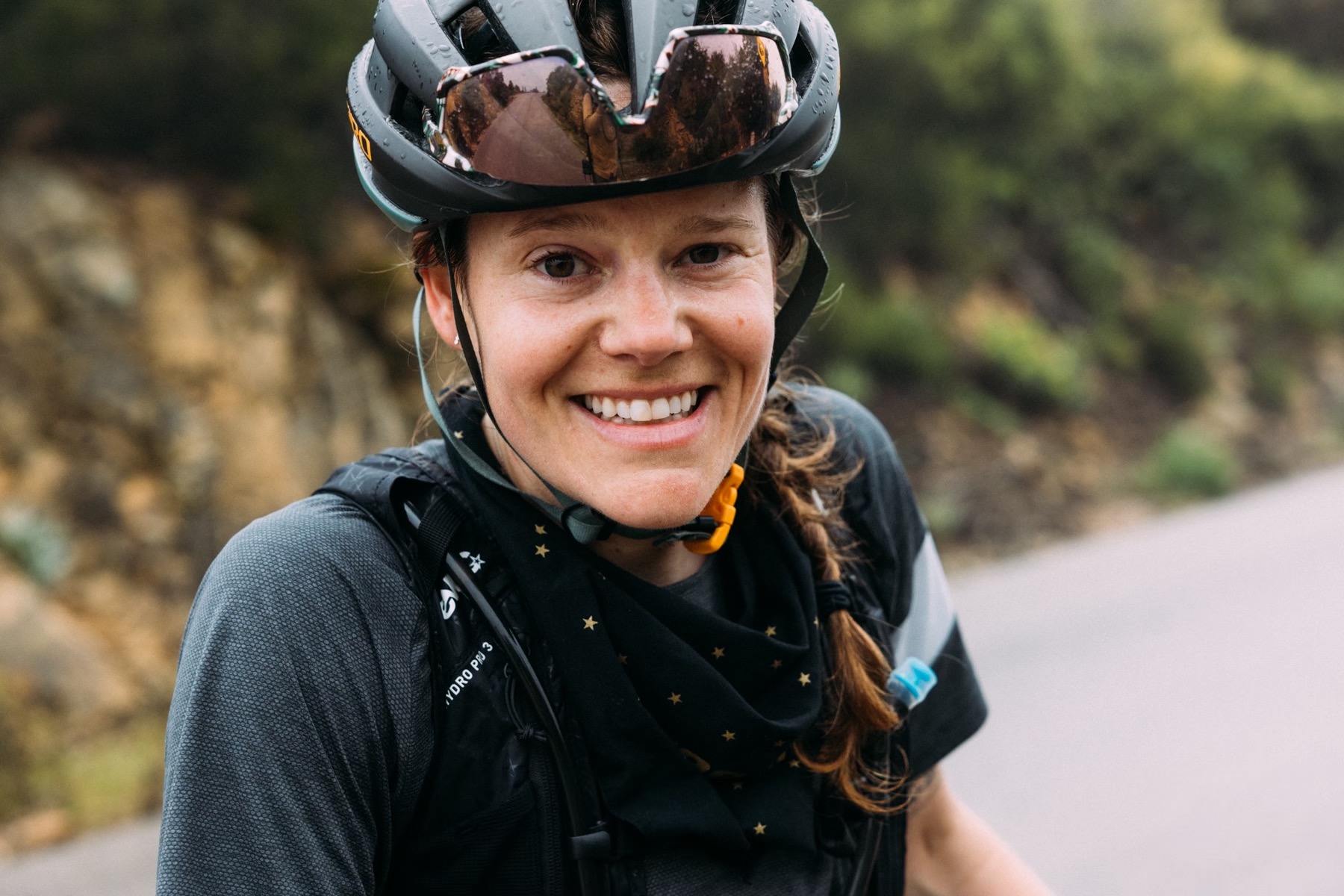
A petition called “Let Women Ride” caught our attention on Twitter last week. With barely 60 signatures at the time, the petition called on the organizers of the Sea Otter Classic to create a more equal racing system that would give all athletes the opportunity for a fair race.
The petition pointed out that with exception of the pro event, every women’s age category was started behind the men’s, often lower, categories.
“This is massively disruptive for female athletes' races because we are forced to deal with passing hundreds of men throughout the entire course, most of which is single track,” states petition organizer Hayley Yoslov, herself a high school racer.
“It ruins the racing experience, and shifts the challenge of the race from a physical challenge to simply navigating other racers. There is absolutely no reason why capable young women should be starting behind 70-year-old men.”
At the time this follow-up story was published, the number of petition signers was nearing 1500 and growing steadily.
We reached out to Yoslov to learn more about her petition and the data-crunching that sparked the demand for change.
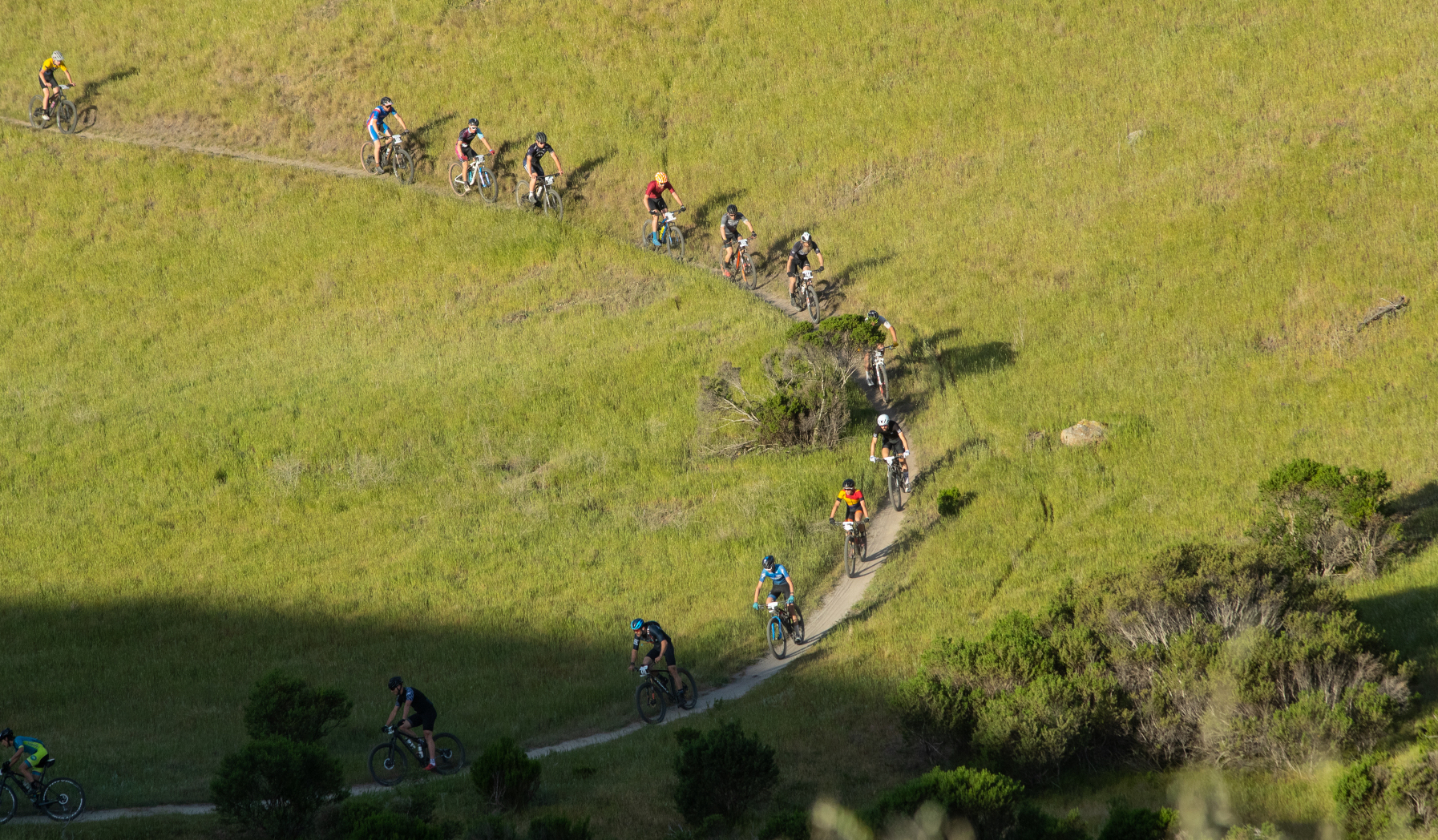
Scenes from the XC MTB race at the 2022 Sea Otter Classic
A High School Project with resonance
Hayley Yoslov is a senior at Branson High School and part of the school’s bike racing team.
Get The Leadout Newsletter
The latest race content, interviews, features, reviews and expert buying guides, direct to your inbox!
In her Ethics & Justice course, Yoslov and her peers were tasked with completing a social justice project. Yoslov began to look into the social and clinical gender gap in sports, and found that she didn’t have to look very far.
“[I] quickly realized that my experience at Sea Otter last year was a great local issue to tackle,” she says.
The issue? Not being able to full race her own race because of having to pick her way through other —often slower— race fields.
“Last year I raced Sea Otter for the first time and had a blast at the festival, but my experience racing left something to be desired. Almost immediately after starting my race, I began encountering slower male riders, gravel riders and even tandem riders, who were all released before any (non-pro) women. As I continued racing and the amount of single track increased, the number of riders I had to pass only grew,” Yoslov recalls.
“On every single descent, I was held back from riding near race-pace because it’s nearly impossible to pass on downhill. Then, on the uphill, I was simply picking my way through the men’s fields, constantly requesting and waiting for other riders to let me by. This forced me to sprint on the fire roads to try and make up distance, and consequently destroyed my ability to follow a race plan.”
The experience felt ”frustrating and unfair” and, as she soon discovered, was one many female racers shared, not just at the Sea Otter Classic, but at races everywhere.
“This issue has resonated with many female racers and has garnered a lot more attention than I was expecting,” Yoslov says.
To look at the issue in numbers rather than pure emotions, Yoslov and her teacher did data processing and came up with some powerful figures.
Looking purely at the Fuego 40 XC race at the 2022 Sea Otter Classic, the data shows that on average, a female racer aged 17 to 29 had to pass 78 men throughout the course. The leaders in these races had to pass a staggering 218 riders that were not in their own field.
Those numbers do not include repeated passes, those who did not finish the race or passing competitors from within their own field.
Data-driven Solutions
To improve the racing experience for all riders, Yoslov devised several data-driven possible solutions to the passing problems.
- Sort riders by ability (i.e: Cat 1, 2, 3, etc.) in addition to gender and age
- Sort existing categories by the median course completion times per category from this year's event.
- Start men's and women's categories at much larger intervals
- Switch start times according to gender.
“If the two fields had been separated by one additional hour, a female racer would've passed, on average, only 14 male racers, which is a 82% decrease,” Yoslov points out.
“We [also] found that if the men’s and women's category start times had been, the average male racer aged 15-29 would’ve passed, on average, 19 women throughout the course — a 75% decrease from what women faced— with the leaders passing up to approximately 43 women.”
Yoslov took her findings and petition to the Sea Otter Classic race organizers, who pointed out their tight time and venue constraints.
The Sea Otter Classic is after-all North America's largest cycling gathering. Some 74,000 people from all over the world congregate at the Leguna Seca Raceway venue over the course of four days. And approximately 10,000 of them compete in some 300 pro and amateur events.
Still, Yoslov feels disappointed.
“I have the utmost respect for the organizers of Sea Otter and can’t imagine how complex of a project it is to plan. However, I think this is a completely reasonable and feasible change that could be implemented through several solutions, none of which include adding additional time,” she says, pointing out that even the simple act of reordering the existing categories would alleviate some of the passing issues.
“If the organizers remain completely rigid in their planning on the grounds that there’s no space for change I’d ask them why it is that female racers are the ones to pay the price for limited timing, while all the men’s categories are spared,” she states. “For such a high quality and well planned event, surely something can be done.”
The “Let Women Ride” petition is still live and steadily growing in signers.
A member of the Sea Otter Classic team responded to our own query, stating that they're discussing the issues at hand.
"We are always looking to improve the experience for everyone at Sea Otter and appreciate the time [Hayley Yoslov] took to provide this information. Our team will follow through and are working on changes to appropriately address your concerns."

Thank you for reading 20 articles this month* Join now for unlimited access
Enjoy your first month for just £1 / $1 / €1
*Read 5 free articles per month without a subscription

Join now for unlimited access
Try first month for just £1 / $1 / €1

Cycling Weekly's North American Editor, Anne-Marije Rook is old school. She holds a degree in journalism and started out as a newspaper reporter — in print! She can even be seen bringing a pen and notepad to the press conference.
Originally from the Netherlands, she grew up a bike commuter and didn't find bike racing until her early twenties when living in Seattle, Washington. Strengthened by the many miles spent darting around Seattle's hilly streets on a steel single speed, Rook's progression in the sport was a quick one. As she competed at the elite level, her journalism career followed, and soon, she became a full-time cycling journalist. She's now been a journalist for two decades, including 12 years in cycling.
-
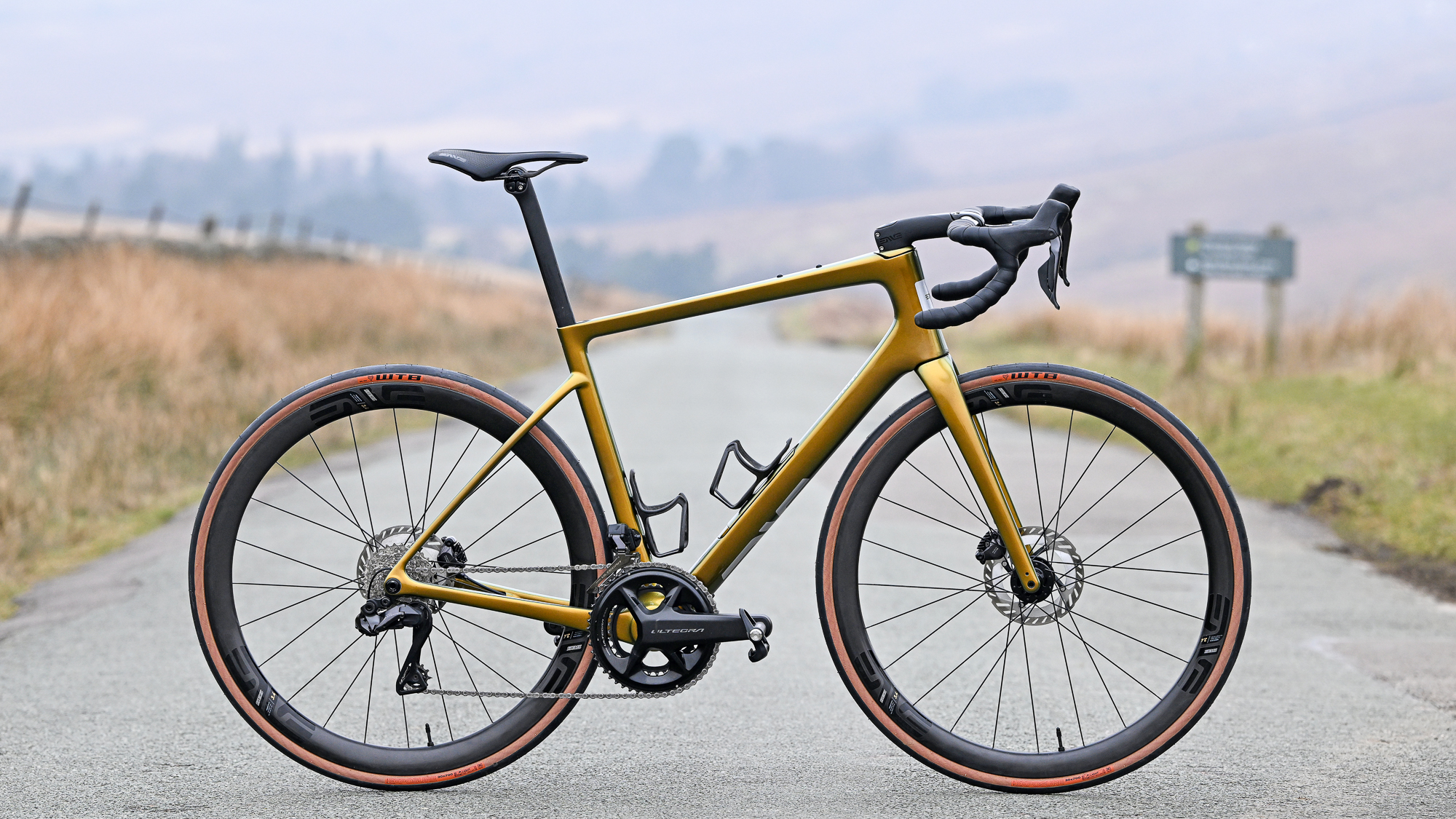 ENVE Fray - the ultimate all-road option?
ENVE Fray - the ultimate all-road option?The ENVE Fray makes a good case for itself being the best all-road bike, but does it make sense?
-
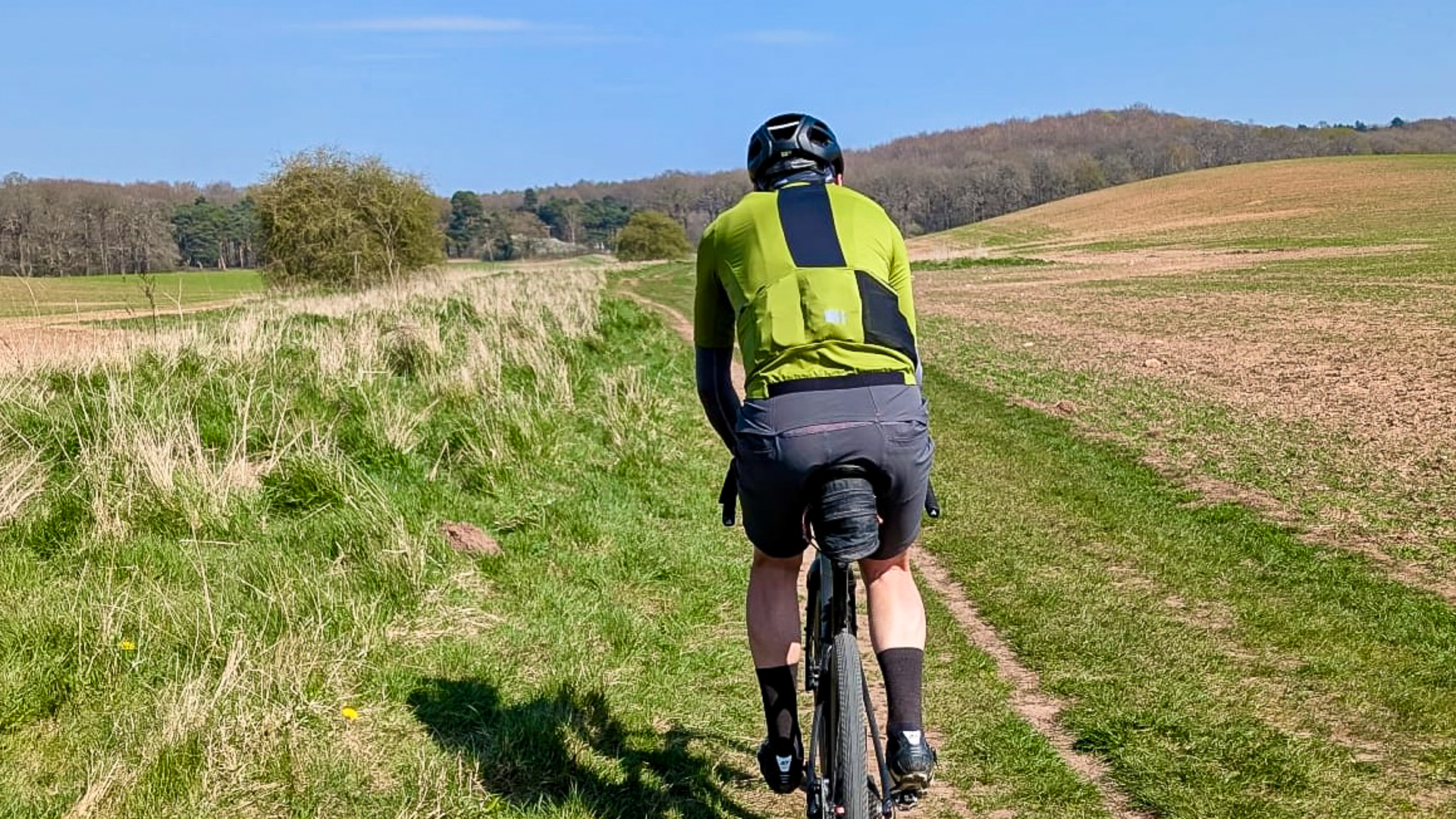 Madison Roam Men’s Short Sleeve Jersey - a jersey for gravel or endurance riding
Madison Roam Men’s Short Sleeve Jersey - a jersey for gravel or endurance ridingA more relaxed fit and five pockets could make the Madison Roam Men’s Short Sleeve Jersey ideal for long adventures on or off-road
-
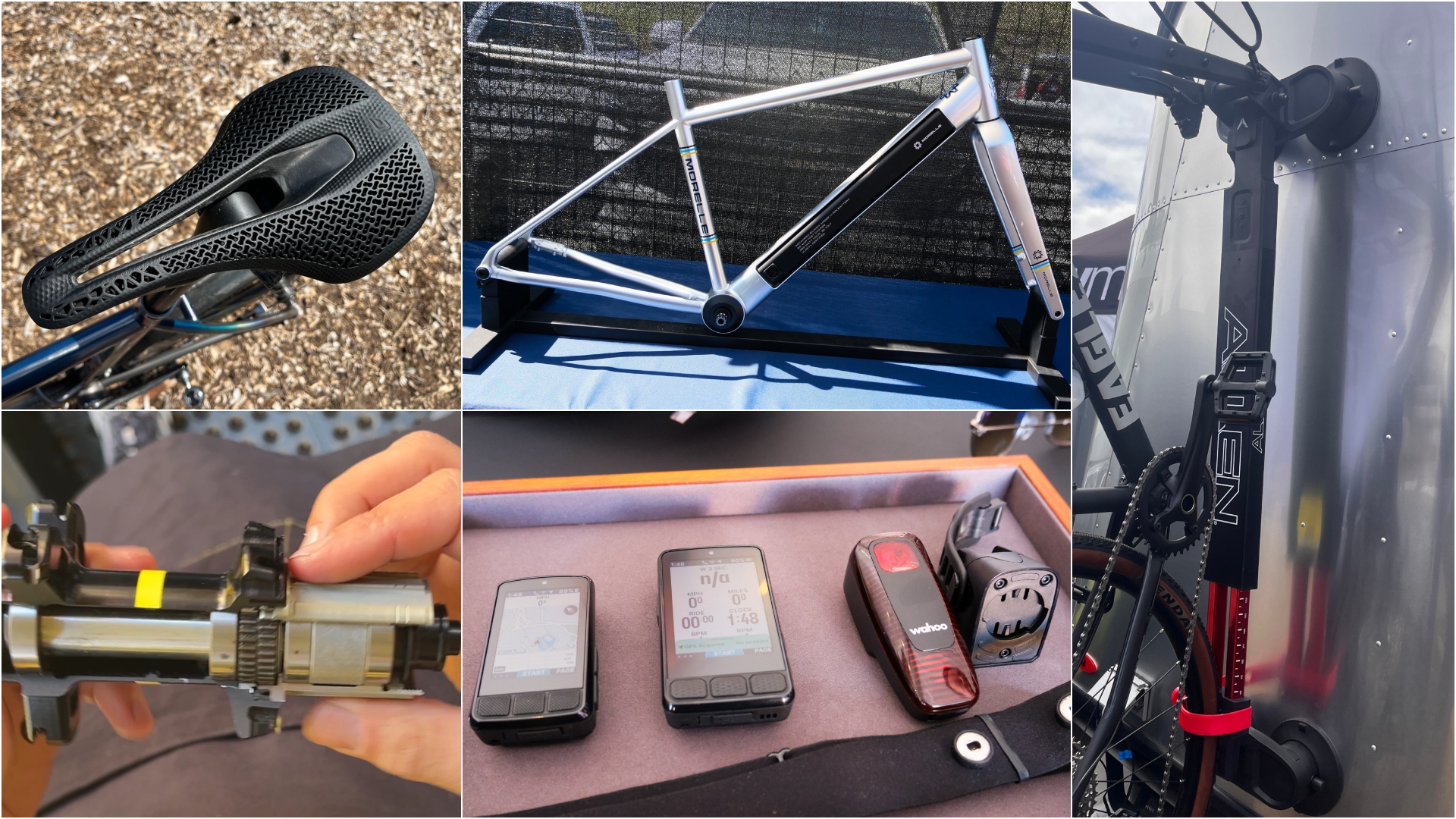 A bike rack with an app? Wahoo’s latest, and a hub silencer – Sea Otter Classic tech highlights, Part 2
A bike rack with an app? Wahoo’s latest, and a hub silencer – Sea Otter Classic tech highlights, Part 2A few standout pieces of gear from North America's biggest bike gathering
-
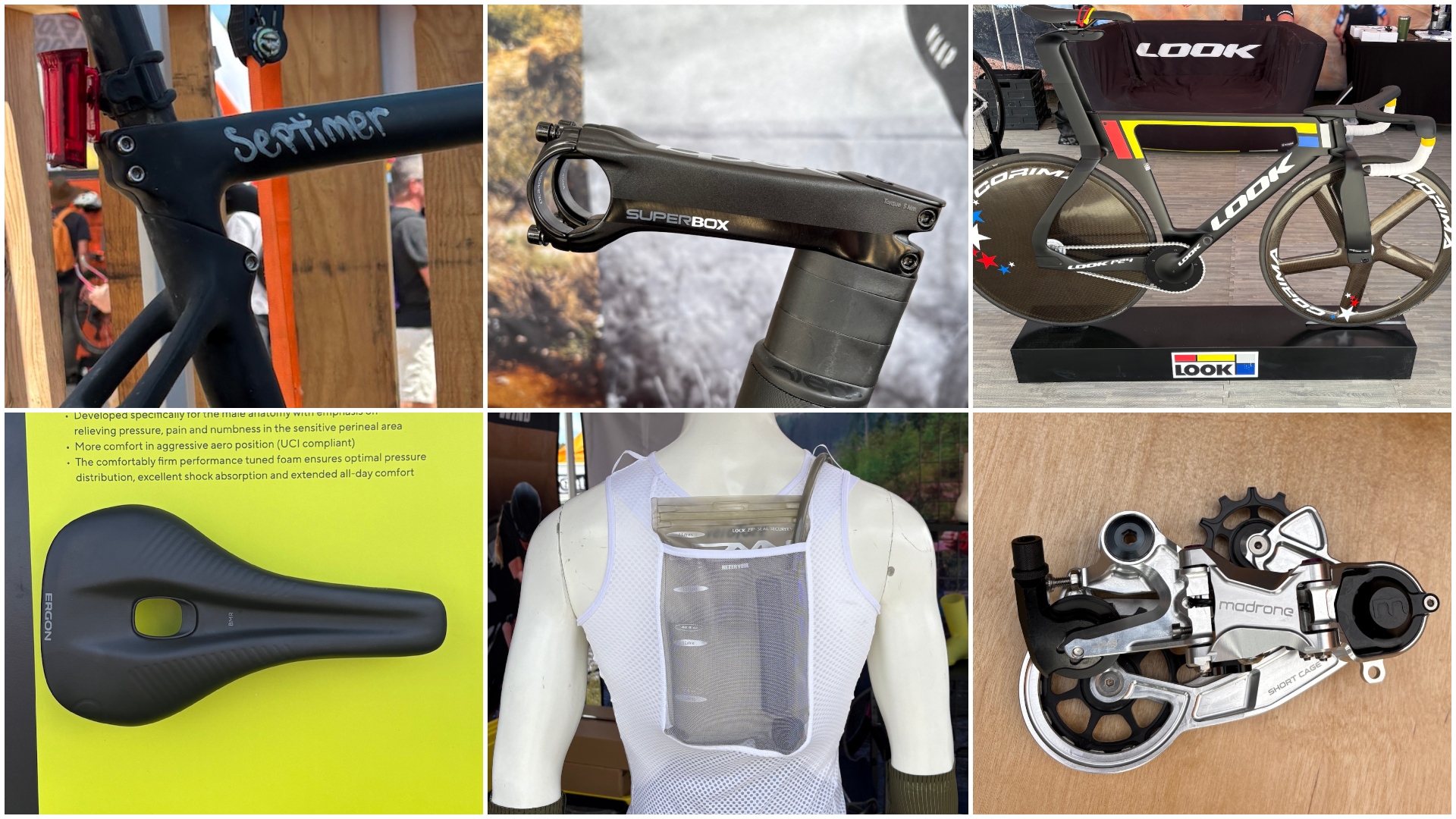 The Sea Otter Classic: sights and sounds from the biggest bike gathering in North America - Part 1
The Sea Otter Classic: sights and sounds from the biggest bike gathering in North America - Part 1Odds and ends that run the gamut, from a $13,000 frameset to armoured kit and new hydro-vests
-
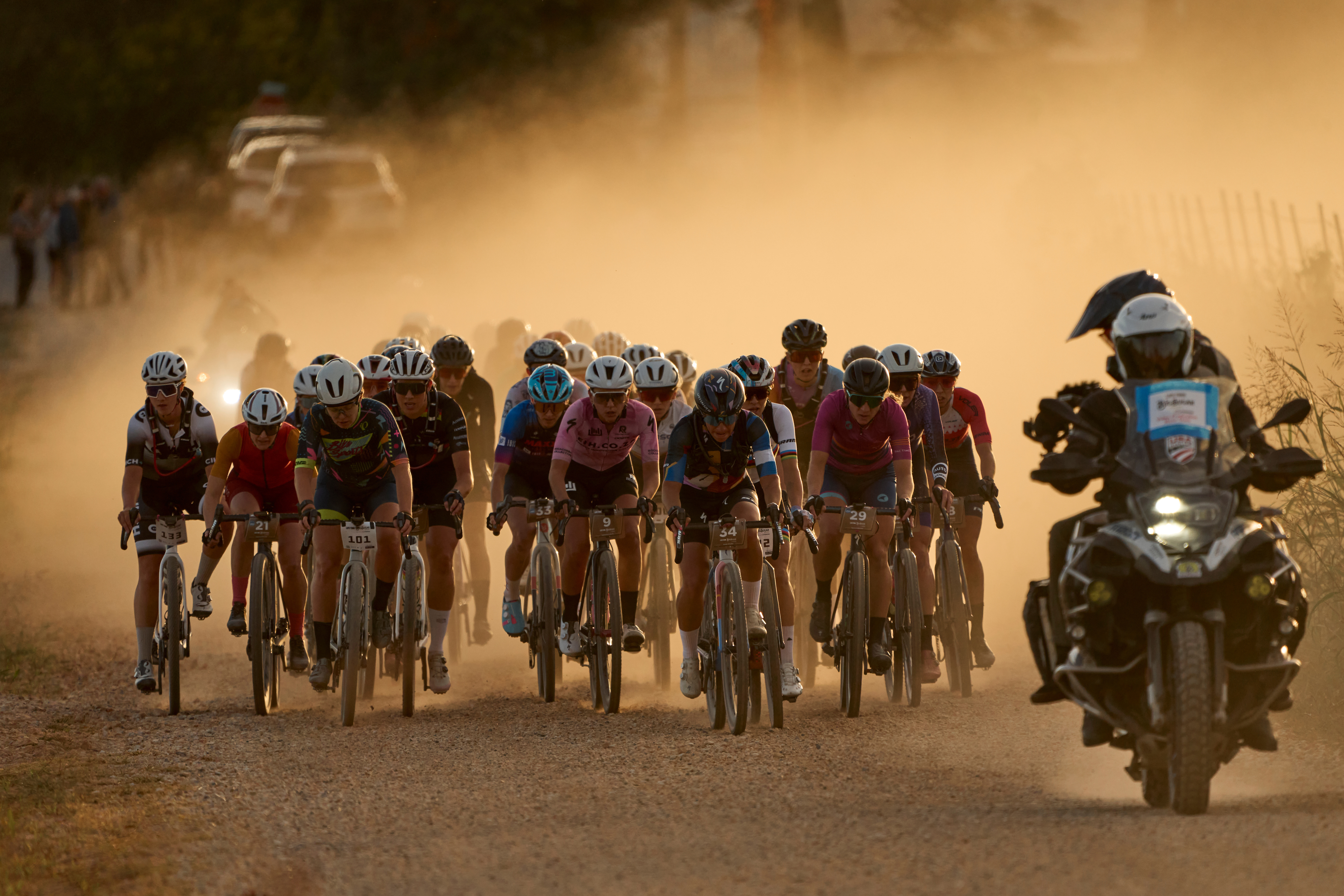 ‘For the first time, American gravel racing is the place to be’ — YouTube series 'Call of a Life Time' premiers January 26
‘For the first time, American gravel racing is the place to be’ — YouTube series 'Call of a Life Time' premiers January 26Now in its second season, Call of a Life Time chronicles all the action from the 2023 Life Time Grand Prix gravel racing series
-
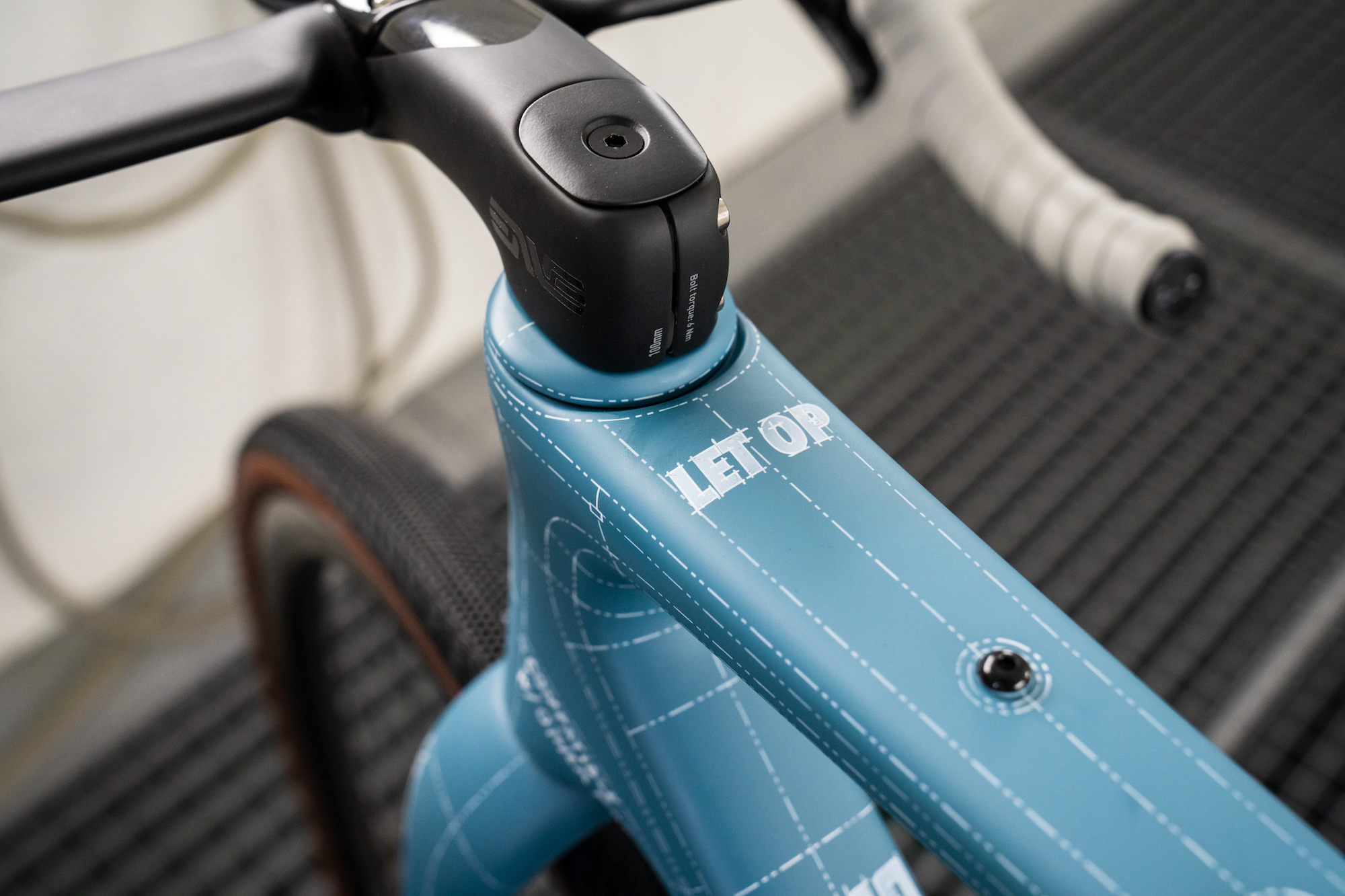 People, Mesmerizing and Papa: Alexey Vermeulen’s custom-painted Enve MOG described in three words
People, Mesmerizing and Papa: Alexey Vermeulen’s custom-painted Enve MOG described in three wordsAfter its unveiling at the Sea Otter Classic, this custom gravel steed will make its race debut at Unbound 200
-
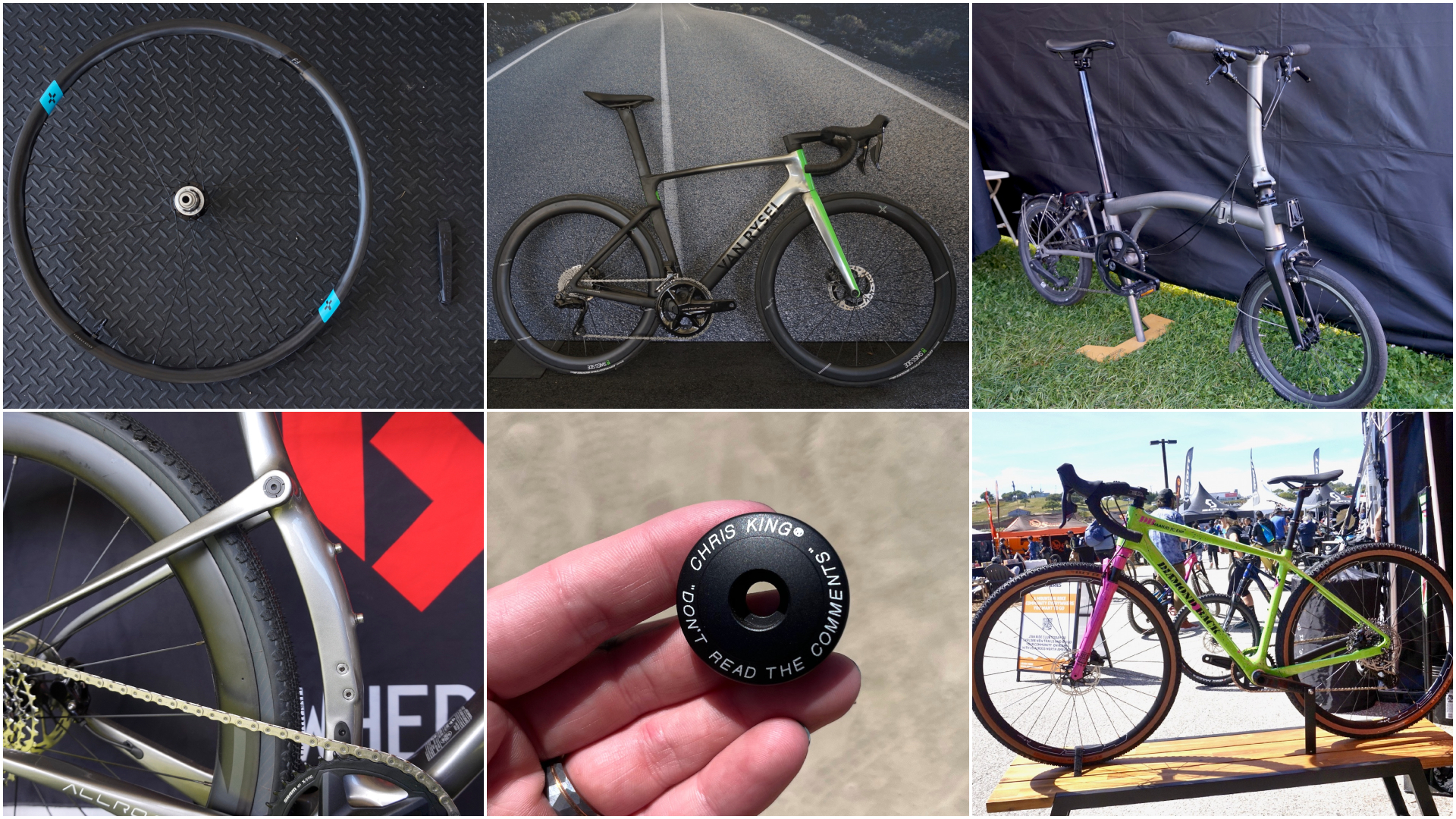 Recyclable carbon rims, solar powered e-bikes, sage advice from Chris King: more tech highlights from the Sea Otter Classic
Recyclable carbon rims, solar powered e-bikes, sage advice from Chris King: more tech highlights from the Sea Otter ClassicNorth America's biggest bike expo is underway in California Here's our Sea Otter Classic dispatch from day two
-
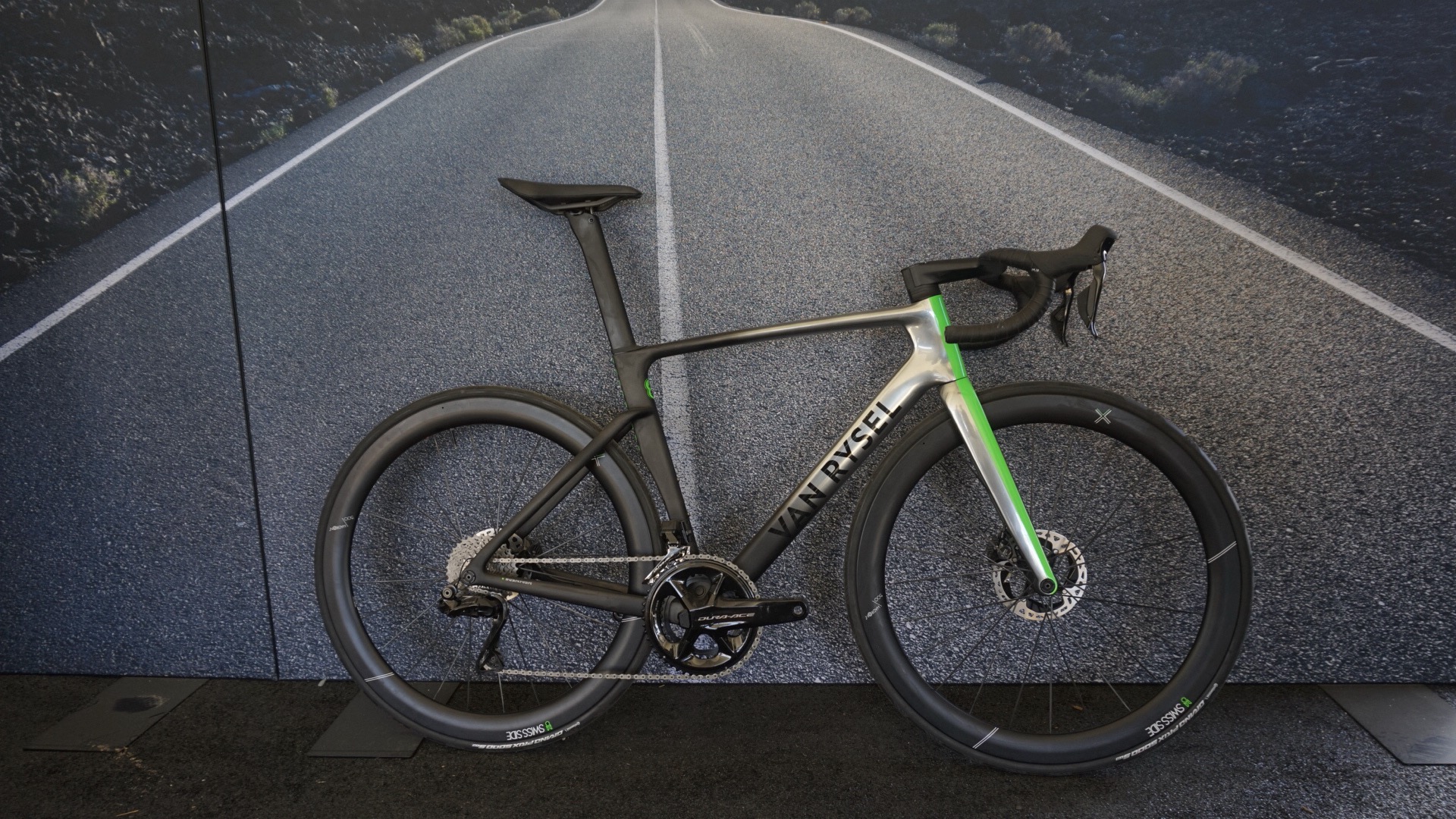 Decathlon goes after the US market; will sponsor a WorldTour team in 2024
Decathlon goes after the US market; will sponsor a WorldTour team in 2024French megastore uses Sea Otter Classic to announce its presence with a $3999 titanium gravel bike and aerospace engineered road racer
-
 The Sea Otter Classic: Tech highlights from the biggest bike gathering in North America - Day 1
The Sea Otter Classic: Tech highlights from the biggest bike gathering in North America - Day 1North America's biggest bike expo is underway in California Here's our Sea Otter Classic dispatch from day one.
-
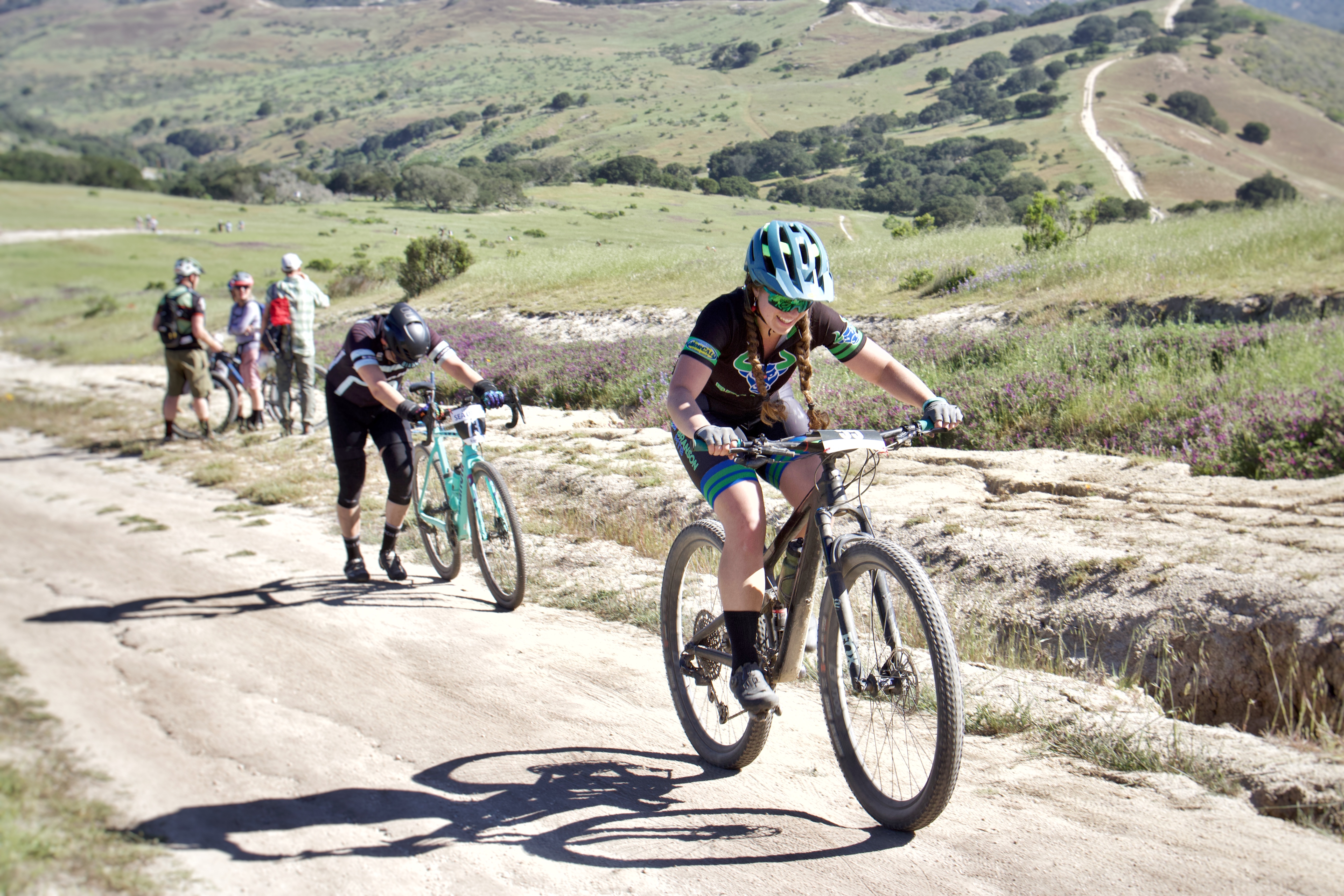 Sea Otter organizers change race start times after student project causes a stir
Sea Otter organizers change race start times after student project causes a stirRace organizers to amend start times to decrease passing issues